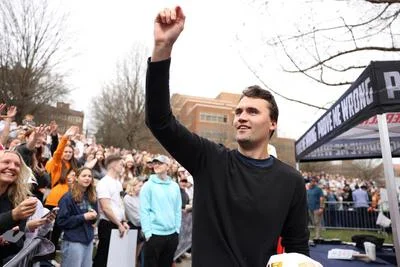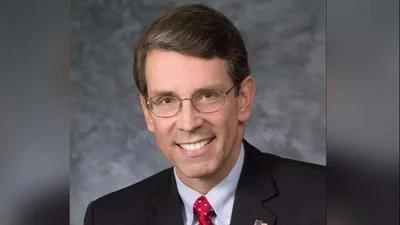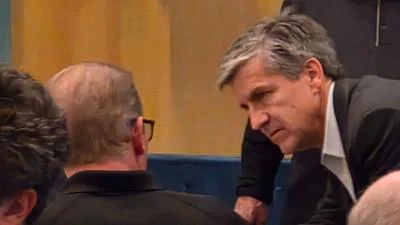George Van Dusen, Mayor of Skokie | Village of Skokie
George Van Dusen, Mayor of Skokie | Village of Skokie
The village of Skokie has announced decisions on two issues regarding the upcoming election, including the decision against including a Ranked Choice Voting referendum on the ballot.
The Skokie Village Board meeting on July 15 discussed issues regarding term limits for village board members and the inclusion of a ranked choice voting referendum on their ballot. The board opted to place a referendum on the ballot to ask voters if they wanted to enact term limits of three terms for village officials.
A decision was also made against including the ranked choice voting referendum after a review of the measure by legal experts from the law firm Klein, Thorpe and Jenkins, Ltd (KTJ), as well as other reports on ranked choice voting.
In a “ranked choice” or “instant runoff” voting scheme, voters rank candidates from highest to lowest preference, instead of voting for a single candidate. If none of the candidates were chosen as the number one pick by a majority of voters, then the candidate with the lowest number of votes is eliminated from the ballot, and that candidate’s votes are automatically changed to their second choice. The scores for each candidate are re-calculated, over-and-over again, until a candidate wins a majority.
Former Democrat California Governor Jerry Brown, Jr. vetoed a bill to expand “ranked choice” voting in his state, calling it “overly complicated and confusing” and stating it “deprives voters of genuinely informed choice.”
“In a time when we want to encourage voter participation, we need to keep voting simple,” Brown said.
In the 2010 “ranked choice” Oakland, California mayoral election, candidate Don Perata received 40,342 votes, the most of ten candidates running and 11,076 more than Jean Quan, who was eventually declared the winner over Perata after ten rounds of re-calculation.
Hans A. Von Spakovsky, senior fellow at the Heritage Foundation called “ranked choice” voting is a tactic to “tinker with and manipulate our elections.”
“In the end, it is all about political power, not about what is best for the American people and for preserving our great republic. So-called reformers want to change process rules so they can manipulate election outcomes to obtain power,” he said. “It disenfranchises voters, because ballots that do not include the two ultimate finalists are cast aside to manufacture a faux majority for the winner. But it is only a majority of the voters remaining in the final round, not a majority of all of the voters who actually cast votes in the elections.”
A 2014 study of 600,000 ballots cast using “ranked choice” voting in Washington State and California found that “the winner in all four elections received less than a majority of the total votes cast.”
In 2022, the City of Evanston became the first municipality in Illinois to approve “ranked choice” voting for its own elections. It plans to change to “ranked choice” in its April 2025 municipal elections.





 Alerts Sign-up
Alerts Sign-up